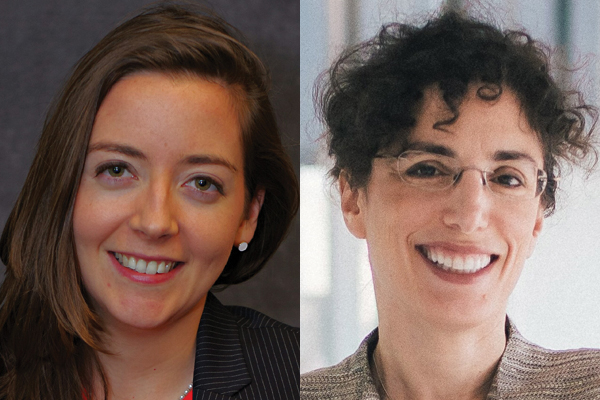ASAE: Bills to ease career paths should not gut certifications
ASAE: Bills to ease career paths should not gut certifications
- June 7, 2019 |
-
 WILLIAM EHART
WILLIAM EHART


ASAE's Cunningham, left, and Judish, of Pillsbury
A push in many states to loosen licensing standards in order to increase job opportunities threatens a core facet of the association business model: certifications.
The desire to ease overly burdensome requirements—on, for example, hair braiders—and ease convicts' paths to the workplace may have unintended consequences, according to ASAE and other association advocates.
hat's because some of the legislation, as originally written, could harm associations' ability to enforce standards of competence and ethics.
"There are these sweeping bills to reform all occupational licensure statutes … (that) apply equally to hair braiders and to brain surgeons, or to the people who are building bridges," said Julia Judish, special counsel at law firm Pillsbury who represents ASAE.
"Often the legislation confuses certification, which is a private function, with licensure," Judish said. "These bills have provisions that intrude on the right of private organizations to establish their own standards of conduct."
Mary Kate Cunningham, vice president of public policy at ASAE, said the association and a coalition it helps lead have been able to amend legislation in several states so that the effort to ease occupational barriers does not unintentionally affect private certifications used by associations to ensure competence and character in their professions.
"In the past six months alone, we've been tracking bills that affect certification in more than 30 states," Cunningham said. Those states include Florida, Missouri, Michigan, Illinois, Ohio and Arizona, she said.
ALEC involved
Many of the bills have been based on model legislation written by the conservative American Legislative Exchange Council.
To combat this trend, ASAE and The Institute for Credentialing Excellence formed the Professional Certification Coalition last year. PCC—with more than 115 state and national groups as members—has been able to work with state legislatures, ALEC and the libertarian public-interest law firm Institute for Justice on changes to the various bills moving through state legislatures. Judish said the coalition works with local association members to have them lobby legislators.
One example is Ohio, where a law signed in January reforms state occupational licensing. The final bill reflected changes sought by the coalition, which was concerned with a provision that would have allowed the state to offer a government-run certification program.
On bills restricting consideration of criminal history in licensure, ASAE is concerned that a blanket approach threatens the ability of associations to enforce codes of conduct.
"If you want to be a certified financial adviser, and you have a conviction for embezzlement, you're not going to be certified," said Judish. "If you have a conviction for child sexual abuse, you're not going to get a health care certification."
